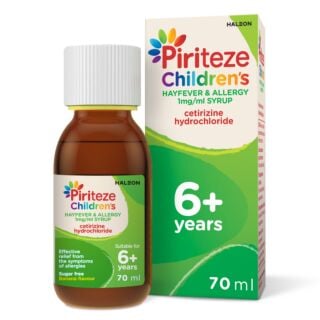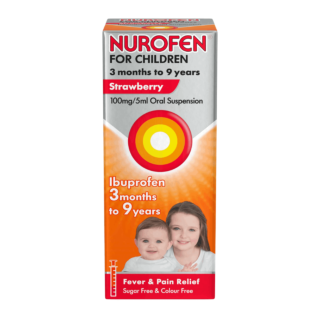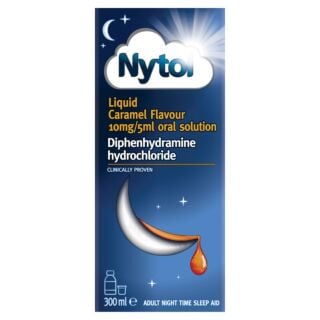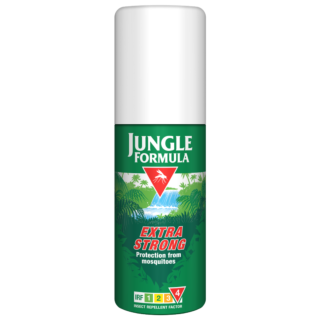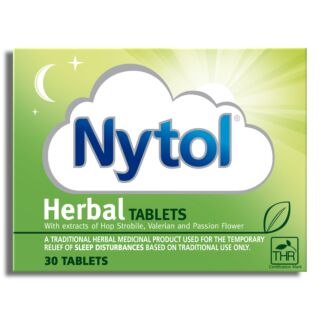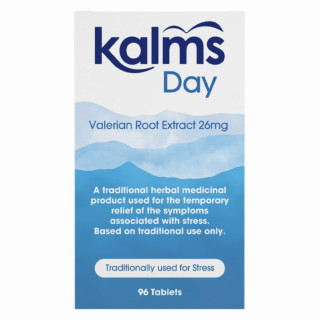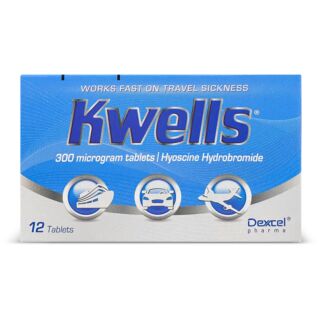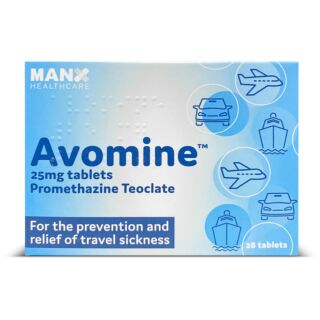Can I take my medication with me on holiday?

Your holiday is almost here and you’re ready to jet off to somewhere warm and sunny for a couple of weeks of rest and relaxation - but have you thought about your medication?
If you have medication that you need to take, you might be wondering whether you’ll be able to take it with you on your flight.
Are you allowed to take your medication in your hand luggage, or will it need to stay in the hold? Will you get stopped by airport security?
We’re going to take a look at all of these questions and more, so you’ll be in the know about medication restrictions and ready to head to the airport for a stress-free journey.
Which medications you can take in your hand luggage
To begin with, let’s take a look at which medications you can take on the plane with you.
You’ll be happy to learn that any medication you need can come with you on your flight, although there are a few restrictions about what can go into your hand luggage.
If you’re planning on taking any medication with you in your hand luggage, you can only take an amount that would be enough to cover your flight plus a reasonable amount to account for possible delays.
These must be in their original packaging and must be correctly labelled. So, if you’re not going to need it during your flight or if your flight is delayed, you’ll need to put your medication into your checked suitcase.
That’s pretty painless so far, right? Well, you’ll be glad to know that taking your medication on your flight with you doesn’t get much more complicated than that.
However, let’s take a look at the most common kinds of medication and the specific rules you’ll have to follow if you want to bring them with you on your flight.
Liquid medications
Those of you who take liquid medications are probably worried about taking these onto the plane with you.
You know all about liquid restrictions on flights and you’re not sure whether your medication will fall under this.
Thankfully, you can take your liquid medications onto a flight with you, but there are a couple of rules you’ll need to follow.
If your liquid medicines come in a container of 100ml or less, your medicine will need to go into a 20 x 20cm resealable plastic bag, along with all of the other liquids you are planning to take with you in your hand luggage.
If your liquid medicine comes in a container of over 100ml or is under 100ml and will not fit into your 20 x 20cm bag, you must carry it separately in your hand luggage.
In this case, you must also have a supporting document to prove that your medication is authentic. This sounds complicated but can be something as simple as a copy of your prescription or a letter from your doctor.
When you go through the security checks at the airport, you must present your liquids for inspection, making sure that any supporting document that you need is with your medication.
Security officers may also need to carry out additional checks on these items, but this is usually nothing to worry about.
You don’t need to tell the airport in advance that you are bringing your medication, just make sure you have any documentation you need with you.
These rules apply to homeopathic medicines and children’s medicines, so make sure you take these into consideration when you’re planning your trip.
Aerosols
Some people worry about taking aerosol medication with them on a plane, as these are often considered to be flammable and people are concerned about security.
However, you’ll be happy to learn that your aerosol medications can come with you in your hand luggage, as long as they comply with the general medication rules we spoke about earlier.
As well as this, aerosols must follow all of the same rules that liquid medications do, so make sure that you check the size of your aerosol before bringing it with you onto the plane and get hold of any documentation you might need in advance.
Tablets
Tablets are by far the easiest medication to take with you on a plane because there are no extra restrictions that you need to follow.
As we mentioned earlier, you can only take as many tablets as you would need to cover the entirety of your plane journey and any delays, and your medication must be in its original packaging, but other than that you’re free to bring your tablet medication with you.
This rule is the same for prescribed tablets, and tablets that you have bought without a prescription, so you won’t need to worry about documentation.
Controlled drugs
If your medication contains a controlled drug, such as codeine, morphine, or diazepam, there will be other guidelines you will need to follow as you enter and leave the UK.
When you are travelling out of the UK, you should check with the embassy of the country you're travelling to and follow their guidelines for entry with your medicine.
This is very important, as using the wrong information could lead to your medication being confiscated and could even land you in trouble with airport security.
If you know that you can take your controlled drug to the country you're travelling to, you'll also want to make sure you have what you need to bring it back into the UK when you come home.
This will usually mean obtaining a letter of proof from the person who prescribed your medication, which will include your name, the list of medications you're taking, the country you're travelling to, and the signature of your prescriber.
If you're not sure whether one of your medications is classed as a controlled drug, you should ask your prescriber for more information or check the list of controlled drugs online.
Which medicines you can take in your hold luggage
You can take any other medication you may need for your trip with you in your hold luggage.
It’s a good idea to keep a spare copy of your prescription or doctor’s letter in your suitcase with your medication, just in case you lose your first copy or security need to make any checks.
One thing you may need to consider is the temperature of your medication. For example, some medicines need to be stored at room temperature and not all airlines will be able to take this into account.
If you’re worried about the medication that you need to put into your checked luggage, contact the airline you’re flying with in advance for more information, they should be able to help you to store your medication at the proper temperature.
Taking flight anxiety medication on a plane
If you’re scared of flying, you may take medication to help you with your phobia and the resulting anxiety.
Alternatively, your doctor might recommend that you take a mild sedative, such as Kalms tablets, before you fly as these can help you to sleep through the flight.
If you’re travelling by plane, you might worry about taking these medications with you, and what you would do if you were not allowed to bring your medication through airport security. Thankfully, you won’t need to worry.
Many of these medications, even ones that you don’t need a prescription for, come in tablet form, which means that you’ll be able to bring enough to last for your entire flight with you as long as you follow the standard rules set for every other medication.
Taking travel sickness medication on a plane
If travel sickness makes your plane journeys a nightmare, you might want to bring some travel sickness medication with you, for example, Kwells or Stugeron tablets.
That’s absolutely fine, as travel sickness medications follow the same rules as any other kind of medication, meaning that you’ll be able to bring enough with you to be sure that your flight will be nausea-free.
If you’re still a little worried about taking your travel sickness medication with you, why not try taking a travel sickness acupressure wristband, such as a Sea Band, instead?
These can help to combat travel sickness naturally without taking medication, so you won’t need to worry about taking any medicines in your hand luggage.
Taking weight loss medication on a plane
If you're taking weight loss medication like Wegovy or Mounjaro, there are certain things you need to do when travelling on a plane.
It's wise to stow them in your carry-on, as the cargo hold of the aircraft can dip to sub-zero temperatures.
Mounjaro can be safely stored at room temperature for up to 21 days. Just ensure the temperature doesn't exceed 30°C, and keep your pen in its original packaging to shield it from light exposure. Wegovy can also be stored at room temperature for up to 28 days, again, as long as the temperature doesn't rise above 30°C.
When you arrive at your destination, if possible, store your pens in the fridge, like in your hotel room, for example. As you will need to bring needles, carry them in your hand luggage and declare them at security. It might also be useful to bring your prescription along with you.
Taking medications on international flights
So, we’ve covered what you’ll need to know to take your medication with you on a UK flight, but what if you’re flying internationally?
Well, all of the rules for taking your medication with you in your hand and hold luggage remain the same, but you will also need to consider the laws in the country you are flying to, even if you’re just passing through a country on the way to your destination.
For example, some countries such as Turkey, India, and Pakistan will not allow some medicines into the country, so you’ll need to check whether your medication is on this list.
You can find out which medicines you can take to other countries online, or by contacting the embassy of the country you’re visiting for more information.
Make sure you do this well in advance, so you can make alternative arrangements if you need to.
If you’re travelling internationally with any kind of medicine, it may be a good idea to have any documentation you need for your medication translated into the language of the country you’re visiting. This will help if airport security has any questions for you.
There we have it, everything you need to know about your flight and the medications you can take with you.
Now you know that you’ll be able to get through the airport and on to your destination hassle-free and you can concentrate on having a good time.

